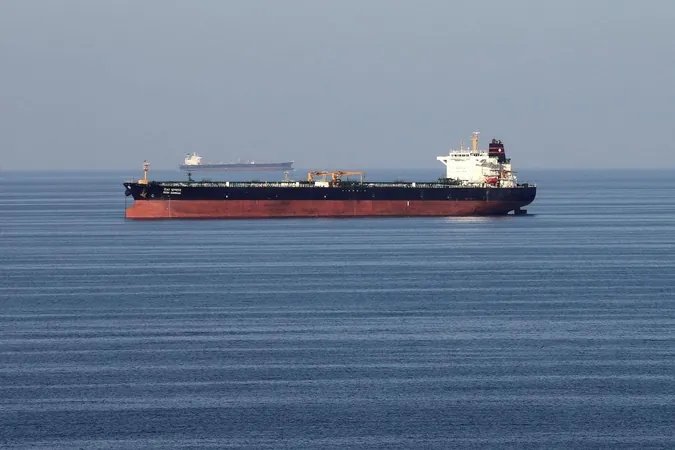
Surge of Tensions: Supertankers Make Sudden U-Turn in Strait of Hormuz After US Strikes
2025-06-23
Author: Ming
Strait of Hormuz in Turmoil
In a dramatic twist, two massive supertankers—each capable of transporting around two million barrels of crude oil—made a sudden U-turn in the volatile Strait of Hormuz. This unexpected maneuver comes on the heels of recent US air strikes in Iran, raising fears of retaliatory actions that could disrupt commercial shipping in the region.
Significant Vessel Activity
The vessels, identified as the Coswisdom Lake and South Loyalty, were tracked entering the vital shipping route on June 22 only to abruptly change their course, heading south away from the Persian Gulf. While there have been rising incidents of electronic jamming in the Persian Gulf following Israeli air strikes on June 13, the movements of these tankers have not shown any signs of abnormality—at least not for this tense climate.
Rerouting Oil Ships Amid Rising Tensions
These tankers signify a potential shift in oil shipping strategies post-US strikes. With the situation escalating, it's plausible that shipping companies may opt to position their vessels away from the Strait of Hormuz, anticipating longer waits upon arrival at loading ports.
Shipping Industry on High Alert
The oil shipping community is closely monitoring how these heightened tensions might impact vessel movements and oil flow. Earlier that same day, Greece's shipping ministry alerted its vessels to reconsider their plans through Hormuz and to seek refuge in safer ports until the chaos subsides.
A Spike in Shipping Rates
As conflict looms, oil tanker rates for Middle Eastern routes have skyrocketed. In less than a week, key rates for supertankers traveling from the Middle East to East Asia surged almost 60%. According to shipbrokers and charterers, the benchmark rate for a supertanker making the TD3C route—which transports crude oil from the Middle East to China—spiked to between 70 and 71 Worldscale points on June 17, a significant leap from around 44 on June 12.
Record-High Chartering Costs
On a daily basis, the price for chartering these supertankers climbed to nearly $46,000 as of June 17. This represents an increase of over $12,000 from the previous session—the largest surge since February 2024. This rapid escalation in costs underlines the serious implications of geopolitical tensions on global oil markets.




 Brasil (PT)
Brasil (PT)
 Canada (EN)
Canada (EN)
 Chile (ES)
Chile (ES)
 Česko (CS)
Česko (CS)
 대한민국 (KO)
대한민국 (KO)
 España (ES)
España (ES)
 France (FR)
France (FR)
 Hong Kong (EN)
Hong Kong (EN)
 Italia (IT)
Italia (IT)
 日本 (JA)
日本 (JA)
 Magyarország (HU)
Magyarország (HU)
 Norge (NO)
Norge (NO)
 Polska (PL)
Polska (PL)
 Schweiz (DE)
Schweiz (DE)
 Singapore (EN)
Singapore (EN)
 Sverige (SV)
Sverige (SV)
 Suomi (FI)
Suomi (FI)
 Türkiye (TR)
Türkiye (TR)
 الإمارات العربية المتحدة (AR)
الإمارات العربية المتحدة (AR)